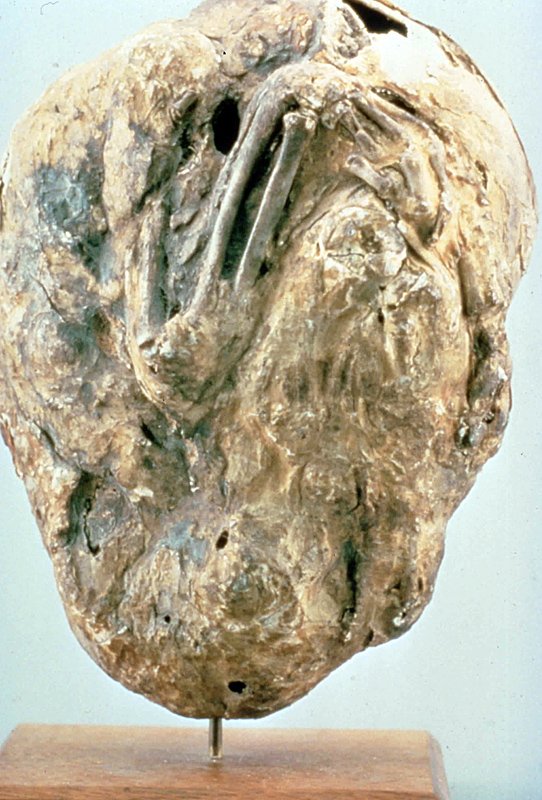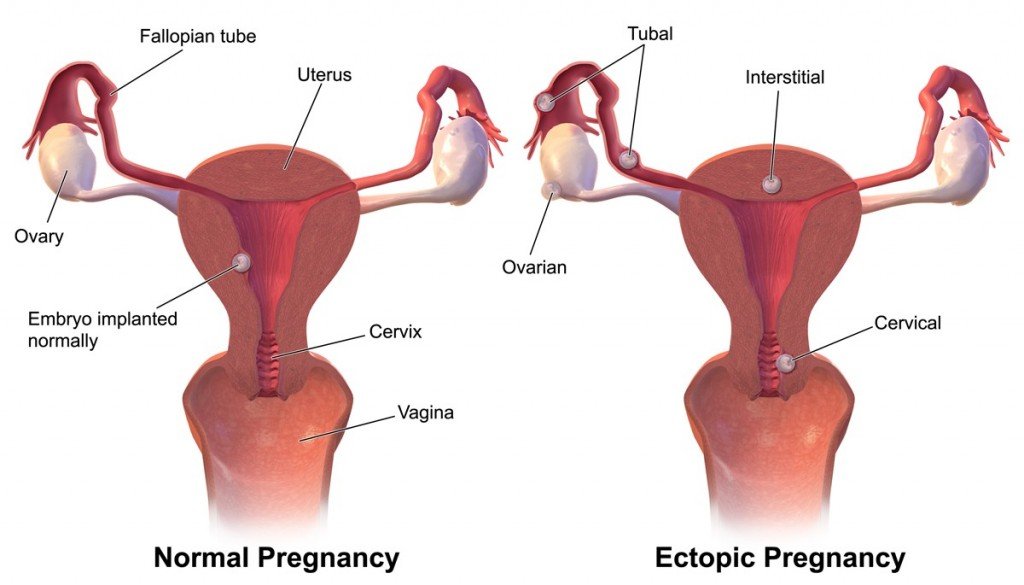Table of Contents (click to expand)
A stone baby is a fetus that has been calcified inside the mother’s body. It is rare, but can occur when the fetus is not expelled or reabsorbed after a natural termination. It is not dangerous.
I recently read a news article that surprised me immensely. It was about a 73-year-old woman that had been carrying a baby in her body for more than 30 years! Obviously, the baby wasn’t alive—it was a stone baby. The woman had no idea that it even existed. She had gone to the hospital complaining of abdominal pain, which is when this bizarre condition was discovered. This, however, was not the first time such an event had occurred. Although it is rare, there have been cases reported where women have gone to hospitals complaining of abdominal pain, inexplicable bulges, or symptoms completely unrelated to their stomach and have been surprised to learn that they are carrying a stone baby.
Stone Baby
The condition of having a stone baby is scientifically called lithopaedion. When an abdominal pregnancy is terminated naturally, and the dead foetus isn’t expelled or is too big to be reabsorbed, the tissue will start degenerating in the mother’s body, which can lead to infections. The woman’s body, therefore, treats the degenerating remains like a foreign object and calcifies it to prevent any further damage.
According to German physician Friedrich Küchenmeister, who studied the literature of numerous reported cases of lithopaedion, it can be divided into 3 types. Lithokelyphopedion is the condition when both, the fetus and the fetal membranes show calcium deposits; Lithokelyphos occurs when the membranes of the fetus calcify, while the fetus itself degenerates inside; and True lithopaedion is when only the fetus is calcified.

Lithopaedion is a very rare condition. In fact, there are only 400 documented and reported cases in all of medical literature. Even when it occurs, the calcified remains usually go unnoticed. In some cases, women have carried these remains in their body for over 50 years. The average age of women diagnosed with this condition is 50 years of age. Lithopaedion may or may not present any observable symptoms. There are no fixed symptoms for it, and it is usually detected when investigating abdominal pains and irregular bleeding, or as an accidental finding. Keep in mind, however, that lithopaedion occurs only when the fetus has developed for 14 weeks or more.
Some observed symptoms include irregular bleeding and spotting, abrupt menses, problems with urination due to pressure on the bladder, unexplained bulges in the abdomen, etc. As one can see, these symptoms can arise from a number of conditions and are not exclusively linked to the presence of lithopaedion.
Also Read: Should Pregnancy Be Longer Than 9 Months?
Abdominal Pregnancy
As is commonly known, a normal pregnancy occurs in the uterus. The egg is released from the ovary of a woman, and then travels through the fallopian tube. This is where fertilization takes places. The fertilized zygote then moves into the uterus and attaches onto the uterine wall. Sometimes, the zygote attaches somewhere other than the uterine wall. This could be in the ovary, the fallopian tubes, or elsewhere in the abdomen. This is known as an ectopic pregnancy.
When this attachment occurs somewhere in the abdomen, apart from the fallopian tubes, ovary or the ligaments holding the uterus to the wall of the abdomen, it is known as an abdominal pregnancy. It is very rare for an abdominal pregnancy to lead to the birth of a healthy baby. The main reason being, when it starts growing anywhere else, the embryo can’t get enough blood and space to grow properly. If the fetus doesn’t die on its own, doctors usually suggest medically terminating the pregnancy. This is because no other organ, apart from the uterus, is designed to hold a baby. Therefore, it can be hazardous to the mother if the pregnancy is not terminated.

If the fetus is small enough, the body can usually reabsorb the tissue. If it isn’t, then it must be removed surgically. Unlike in the case of a normal miscarriage, the body may not be able to expel the fetal remains. When the fetal remains are not removed, either naturally or surgically, they may turn into a lithopaedion.
Also Read: How Does A Fetus Survive In The Womb?
Early Cases
As mentioned before, this is a very rare occurrence, with only 400 documented cases in history. The first documented case was about a thousand years ago. The article pertaining to this case was published in 1495 in Venice, soon after the advent of printing. It reported the case of a woman who actually passed the fetal bones through her abdominal walls, but eventually made a full recovery. This was reported by the famous surgeon Albucasis.
Another case was reported in 1540, when the skeleton of a baby boy was surgically removed from a woman’s body. The woman was fine, however, and went on to give birth to 4 healthy children.
Lithopaedion occurrence is extremely rare in today’s times. It occurs in those scarce instances where proper medical aid isn’t available to women and is often seen as the result of negligence. However, even in the case of lithopaedion formation, woman have been known to give birth to other children normally. With advancements in medical aid and technology, lithopaedion is not a life-threatening condition.
How well do you understand the article above!

References (click to expand)
- (1968) Lithopedion. - PMC - NCBI. National Center for Biotechnology Information
- Bazan, F., Radosevic, A., Aguilar, G., & Sanchez, J. (2014, October). Lithopedion. Cirugía Española (English Edition). Elsevier BV.
- Archives - The Stone Baby - Albany Medical Center - alumni.amc.edu
- Abdominal pregnancy - Wikipedia. Wikipedia
